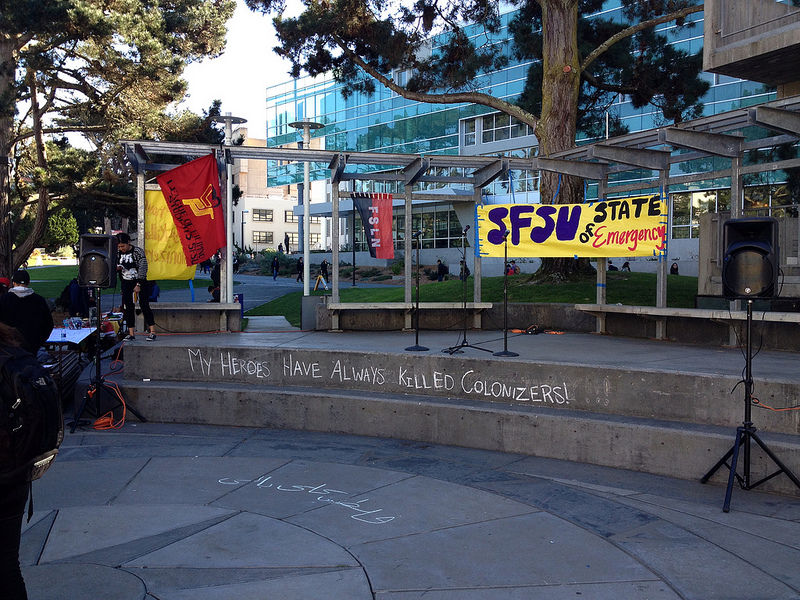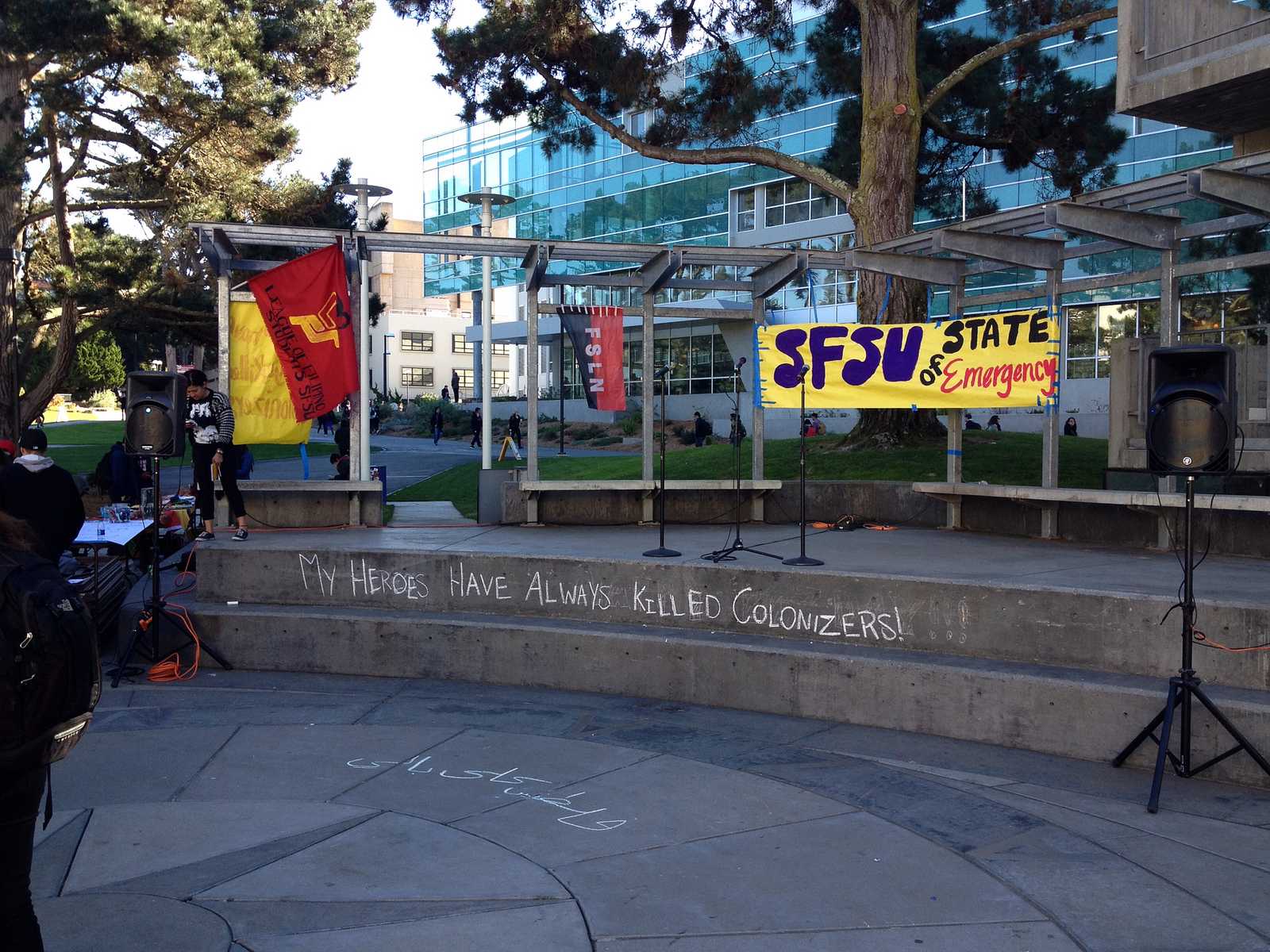
At the "State of Emergency" rally Thursday, Dec. 5, 2013, the phrase "My Heroes Have Always Killed Colonizers" was written with chalk onto the stage in Malcolm X Plaza. Photo by Benjamin Kamps / Xpress

At the “State of Emergency” rally Thursday, Dec. 5, 2013, the phrase “My Heroes Have Always Killed Colonizers” was written with chalk onto the stage in Malcolm X Plaza. Photo by Benjamin Kamps / Xpress
SF State President Leslie E. Wong sent out a mass email to the campus community Monday, addressing a balance between expression and safety.
Wong wrote the letter in response to two recent events involving students that have garnered harsh scrutiny, and become the subject of debate. Wong referred to two events, one organized by the General Union of Palestine Students (GUPS) and one posted on a GUPS member’s personal blog. Both have been challenged by the AMCHA Initiative, a watchdog organization for anti-Semitic and anti-Israel activities at universities.
“Strong opinions — and strong disagreements — are essential to the life of our democracy, and the life of our university,” Wong said. “While one may want to step in and sanction a student or colleague for speech we find repugnant, our obligation is to allow the lawful airing of views.”
The first incident happened at the Edward Said mural celebration, which GUPS organized with other campus organizations, where tables were set up for art projects. At one of the tables there was a stencil that read, “My heroes have always killed colonizers,” which the AMCHA Initiative considered anti-Semitic.
The quote, originally referred to a specific rhetoric of Native American resistance and at the rally was held by members of Student Kouncil of Intertribal Nations (SKINS), el Movimiento Estudiantil Chican@ de Aztlán (MEChA) and GUPS.
GUPS posted a picture of a member, holding the sign at the celebration, on their group website and it has since received harsh scrutiny from outside sources, including the AMCHA Inititive.
“In the context of the day’s events honoring the Palestinian Mural’s subject Edward Said, who notoriously accused Israeli Jews of being ‘colonizers,’ the stencil clearly refers to the killing of Jews,” said Tammi Benjamin, co-founder and director of the AMCHA Initiative. “Language and images that glorify and honor the murder of Jews are anti-Semitic.”
The second, online incident is the AMCHA Initiative’s exposure of GUPS President Mohammed Hammad, who posted a picture of himself on his personal blog holding a knife and wrote “I seriously can not get over how much I love this blade. It is the sharpest thing I own and cuts through everything like butter and just holding it makes me want to stab an Israeli soldier.”
Although the picture was posted in August, it too received harsh criticism and has since been removed. This most recent incident prompted the Simon Wiesenthal Center, which runs the Museum of Tolerance, to warn President Wong of a “potential threat” to Jewish students.
Wong issued a response promising to investigate the situation, in which he said hate speech of any kind had no place at SF State, but he stood behind all student’s rights to free speech.
GUPS said both accusations are a smear campaign by Tammi Benjamin and the AMCHA Initiative, which GUPS claims is trying to silence them.
After President Wong issued a statement condemning the language of the stencil, GUPS member Francisco González said the organization felt betrayed by Wong.
González said GUPS’ concern is of the well-being of Palestinians in their homeland and abroad, and they are not trying to harm people.
“We don’t have a position on Jews. We have a problem with Zionists,” González said. “You can be an Atheist and be a Zionist. You can be Christian and be a Zionist. You can be Jew and be an anti-Zionist,” González said.
He condemned outside organizations that claim to speak on Jewish students’ behalf, without listening to the whole story.
The language used in the incidents President Wong referred to, but did not mention, in his email is legally protected speech, according to mass communication law teacher David Greene. He reiterated that Wong was not condemning the acts in his email, but instead encouraging civil discourse.
“Universities, especially public universities, play an essential role in fostering debate,” Wong wrote. “We work hard to achieve a balance where both expression and safety are fostered.”
